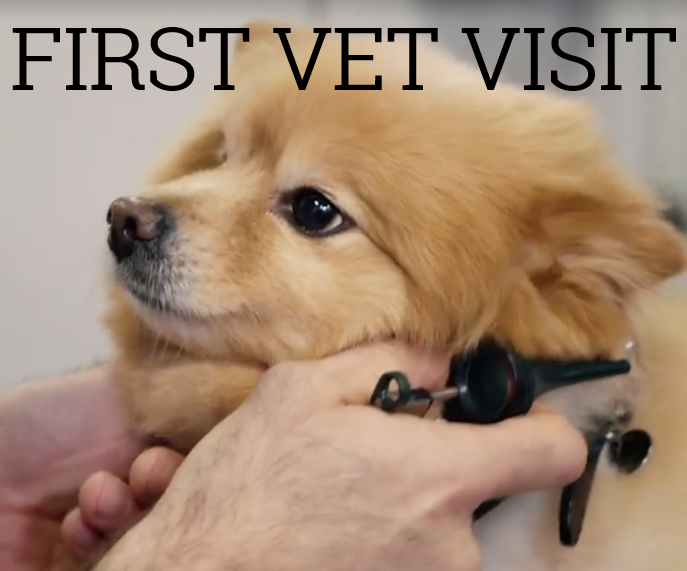How to make it more successful for everyone
As a new puppy parent, you’ve probably been told how important it is that your new dog gets regular veterinary care. (You may even have had to sign papers promising this care.)
But even the most committed dog owner can find those first few months tough: New puppies have to visit the vet every few weeks in their first 6 months, for everything from checkups to immunizations and boosters to parasite checks.
However, one of the side benefits to all these early visits to the vet is that they allow your puppy to become accustomed to the sights, sounds and smells of the veterinary clinic, which will make it easier later on. The idea of having to carry or drag a full-grown Bernese into the vet’s office sounds funny – until you have to do it yourself. Your dog may never come to love going to the vet, but you can make it easier on both of you.
Here’s how:
Don’t put the vet visit off
It’s a well-understood truism that dogs who are (properly) handled by veterinary professionals from a very young age will accept veterinary care more easily as they get older. A puppy who starts going to the vet an early age will ultimately be a better vet patient for the rest of their lives.
Set a good example
One of the reasons dogs are such good companions for humans is that they pick up on the emotions of the people around them – especially their owners. If you start signaling nervousness or anxiety from the time you leave your front door to the time you get into a treatment room, your dog will pick up on it. So just treat it as a normal outing, greet the vet staff cheerfully, and don’t spend too much time over-reassuring your dog. You’ll both have a better experience.
Exercise before the visit
Whether they’re 3 months old or 10 years old, dogs are always calmer, less anxious, and less likely to be fractious when they’ve had enough exercise. If possible, take your dog for a brisk walk or a run around the park before you visit the vet (the exception to this is if your vet needs urine or fecal samples when you get there – a long walk may leave them with little left in the pipes). A well-exercised dog always makes a better patient.
Don’t stint on the treats
Most vets have treat jars everywhere from the front office to the treatment rooms, and they also have super-special treats like beef paste they can bring out for dogs who need a little extra something. It’s amazing how quickly a dog will come to associate a specific place with a generous amount of delicious treats – and how that will go a long way to overcoming anxiety.
Choose the right vet
Here’s the thing: Your vet appointments will never go smoothly if either you or your dog doesn’t feel comfortable with the veterinarian. It’s got to be the right fit. You may prefer a clinic that specializes in specific dog breeds, or one with super-modern equipment, or one with a vet who seems super-friendly or super-smart – the key is whether you get a good feeling when you walk in the door, and trust the people who are interacting with your pet.If you’re looking for a new vet, don’t hesitate to request a 10-minute introductory meeting. Good vets understand the importance of establishing relationships, and they’ll be happy to spend a few minutes showing you their practice and meeting your pet before you sign on as a patient.
Congratulations on your new puppy!
We hope you have many, many happy – and healthy – years together!

